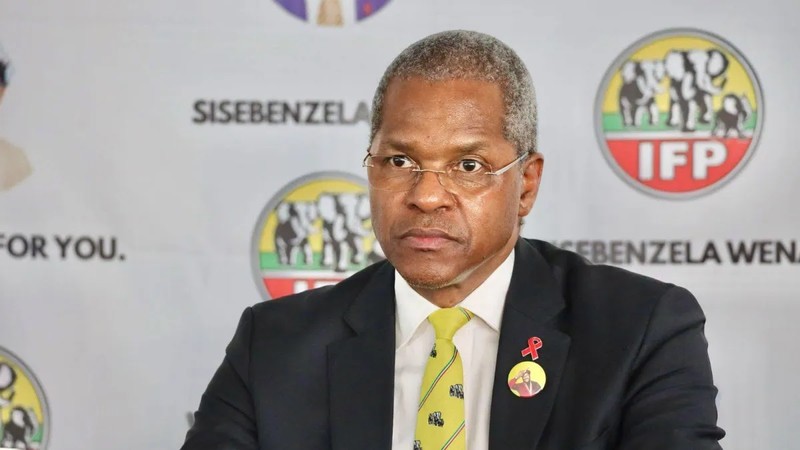IFP's strong stance on deporting illegal immigrants sparks national debate
Calls by the Inkatha Freedom Party (IFP) for the deportation of unskilled and illegal foreigners have received widespread support, including from organisations that advocate for the interests of foreign nationals in South Africa.
Political experts and representatives from the African Diaspora assert that foreign nationals should either regularise their status in the country or leave.
The presence of illegal foreigners has been a contentious issue, leading to numerous tense moments across the nation.
Political parties such as ActionSA and the Patriotic Alliance, along with organisations like March and March and Operation Dudula, have all advocated for the deportation of illegal foreigners. Dudula and March and March have even gone as far as blocking access to hospitals to prevent illegal foreign nationals from receiving healthcare.
These actions to deprive people of medical care have been criticised by the government. There have been reports that Operation Dudula has also made threats to target schools next.
Addressing IFP members during the party’s golden jubilee celebrations on Saturday, IFP President Velenkosini Hlabisa called for firm action against illegal immigrants. The celebrations were hosted at the Jabulani amphitheatre in Johannesburg,
“Now, I want to speak plainly and clearly about a challenge that affects our daily lives—illegal migration. It is a concern that impacts our homes, our communities and our economy.”
Hlabisa reiterated the IFP’s position on illegal migration, stating that foreigners who do not possess the skills needed in South Africa must return to their countries.
“The IFP firmly supports legal migration—we need skilled workers to grow our economy. But illegal migration is a crisis—a national emergency. Estimates suggest that up to 15% of the population may be undocumented. Illegal immigrants breach our borders, threaten our security, and strain our already fragile resources— healthcare, education and social services.”
“Let me be clear: illegal entry and illegal stay in our country are lawbreaking (activities) that must be addressed decisively. Our country’s resources are stretched thin—our health and our education, our social programmes—these are for our citizens first.
“We cannot allow the crisis of illegal migration to undermine our sovereignty and security. We call on government agencies to work together—using all legal means—to repatriate those who are here unlawfully and to protect South Africa’s borders and communities.”
Furthermore, Hlabisa emphasised the need to prioritise employment for South Africans, proposing an 80/20 employment target, where at least 80% of jobs in companies must be reserved for locals.
“Our country’s future depends on the opportunities we create for our youth, our women and our small enterprise owners—because only when South Africans prosper can our nation truly thrive.
“Putting South Africans first is our core commitment—whether it’s safeguarding our borders, defending our jobs, or ensuring safety. Illegal migration is not just an issue; it poses a security threat and a severe burden on our fiscus. We must never compromise on safety—our nation depends on it,” he concluded.
Dr Vusumuzi Sibanda of the African Diaspora stated that their position on undocumented migrants aligns closely with that of the IFP.
“If one is irregular in the country, they need to regularise their stay or go back because it complicates government planning. If such individuals commit crimes, there is no way of holding them accountable, and everyone becomes unsafe without resources against undocumented people.”
He added that service delivery is also impacted, as the government cannot provide for people it does not know exist, leading to social unrest.
Political analyst Siyabonga Ntombela supported the IFP’s stance, stating, “What country would we be in if we started grading levels of illegalities? We accept one form of illegal but reject another. Illegal goods and counterfeit money are illegal, but when it comes to people, we set a different standard. Our immigration laws are clear and need to be respected and enforced accordingly.”
However, he cautioned that the IFP’s position might be perceived as an election gimmick, although he acknowledged that they raise a valid point that has cost the country billions and delayed the social cohesion that South Africans desperately need.
Professor and cultural expert Musa Xulu noted an international trend among right-leaning political parties to be intolerant of the current era of massive migration.
“The threats are always on issues such as identity, politics of racial and ethnic purity, jobs, and many other social phenomena where these right-leaning political parties feel deprived by unknown people. This happens whether migration is legal or illegal.”
Xulu expressed doubt that the IFP would gain significant political mileage from this stance, referencing the first attempt by Operation Dudula to contest in by-elections around Soweto.
“While it may sound popular, the anti-immigrant ticket may backfire at the electoral stakes.
“The immigrants from SADC countries have legitimate claims to helping the previously oppressed black majority attain freedom through offering spaces for exile and significant financial support to the Liberation Movement of South Africa led by the ANC,” he concluded.

